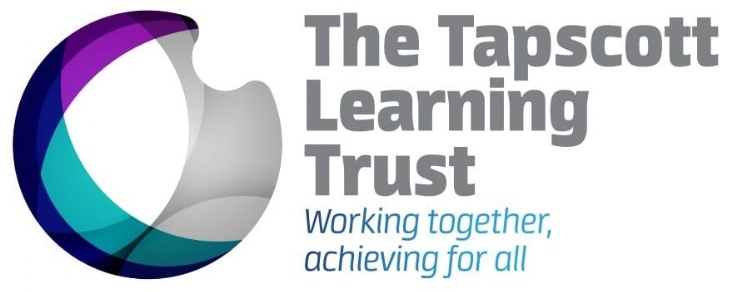Concerns & Complaints
SCHOOL COMPLAINTS PROCEDURE
From time to time parents, and others connected with the school, may become aware of matters which cause them concern. To encourage resolution of such situations The Tapscott Learning Trust has adopted a Concerns and Complaints Policy & Procedure. The school will deal with all concerns or complaints in a sensitive, impartial and confidential manner and ask that any complainant do the same.
Any person, including members of the public, may make a complaint about any provision of facilities or services that a school provides, unless statutory procedures apply (such as exclusions or admissions).
This is a summary of the four stages of concerns and complaint procedures.
Stage 1a: Talk to the class teacher or SENDCO (informal) / Concerns
The complainant should raise their concern or complaint as soon as possible with the relevant member of staff in person, in writing, or by telephone. If the complainant is unclear who to contact or how to contact them, they should contact the school office.
Make an appointment to see the class teacher. The class teacher will know your child well and may already know the details of any incident about which you may have a concern.
It is hoped that you can reach an agreement that satisfies you but on some occasions the concern raised may require investigation, or discussion with others, in which case the complainant should allow at least 5 days for a response. However, if it is not the case, please progress to Stage 1b.
Stage 1b: Meet a senior teacher (informal) / Concerns
Please contact the school office to arrange to meet with a senior member of staff who will investigate the complaint and reply within 5 working school days. If the complaint is not resolved informally, it will be escalated to a formal complaint (Stage 2).
Stage 2: Complaint goes to Head teacher (formal)
If the complainant is dissatisfied with the response from the member of staff at Stage 1 they should be advised to put their complaint in writing to the Head teacher who will deal with it formally or appoint an Investigating Officer at Stage 2.
The formal stage involves the complainant putting the complaint into writing, usually to the Head teacher and / or the subject of the complaint. This letter should provide details such as relevant dates, times and the names of witnesses of events, alongside copies of any relevant documents. The complainant should also state what they feel would resolve the complaint.
Where the Head teacher is the subject of the complaint, the complainant should address the complaint to the Chair of the LAB. If the complaint is being dealt with by the Chair of the LAB this will bypass Stage 2 and go the Stage 3 of the formal procedure and be heard by the Chair of the LAB. The complainant must ensure that they include details of why they are still dissatisfied and what action they would like taken in order to resolve the complaint. They can also attach any evidence to support their concerns.
Where the subject is the Trust, the complaint should be addressed by the Chair of Trustees.
The Investigating Officer must acknowledge the complaint within 5 days by writing to the complainant. The acknowledgement should state that a further communication will follow within 20 school days that will set out the actions taken to investigate the complaint and the findings.
Once satisfied that the investigation has been concluded and a decision has been reached, the Head teacher / Chair of LAB must notify the complainant in writing of the conclusion and any actions that will be taken as a result.
If the complainant is not satisfied with the response and wishes to proceed to the next stage of this procedure, they should inform the Chair of LAB why they are still unhappy.
Stage 3: if not resolved at Stage 2, Chair of the LAB (formal)
Complaints will be escalated to the panel hearing stage if the complainant is not satisfied with the response to the complaint at the Stage 2 (formal).
The complainant must ensure that they include details of why they are still dissatisfied with the decision, the recommendations and the actions of the Stage 2 complaint and what they require to resolve the matter. They may also attach any evidence to support their concerns that can be additional to that submitted at Stages 1 and 2.
Upon receipt of a complaint at Stage 3 the CEO must also be informed, and if necessary, work with the Chair of the LAB to help to resolve the complaint.
Where the subject is the Chair of Trustees, the complaint should be addressed to the CEO.
Where the subject is the CEO, the complaint should be addressed to the Chair of Trustees.
The Investigating Officer must write to the complainant within 5 days of receipt of the complaint to acknowledge this. The letter should state that another letter will follow within 20 school days setting out the actions taken to investigate the complaint and the findings.
The Investigating Officer will look at all the information pertaining to the complaint submitted by the complainant and the investigatory evidence by the school at Stages 1 and 2. The Chair may want to talk with the complainant or investigating staff members to establish facts and obtain further information.
Once satisfied that the investigation has been concluded and a decision has been reached on the complaint, the Chair will notify the complainant in writing of the conclusion. The complainant will also be informed that should they still be dissatisfied that they may write to the Trustees of The Tapscott Learning Trust.
Stage 4: if not resolved at Stage 3, review panel (formal)
If the complainant is dissatisfied with the response from the Chair of the LAB at Stage 3 (formal) they should be advised that the next stage is to put their complaint in writing to the Trustees at Stage 4.
The complaint will be escalated to the panel hearing stage. This is the final stage of the process. The panel will comprise of Trustees and LAB members from across the Trust who form a complaints appeal panel.
The complainant must ensure that they include details of why they are still dissatisfied with the decision of the Chair of the LAB, recommendations and actions of the Stage 3 complaint and what they feel would resolve the matter. They can also attach any evidence to support their concerns in addition to that submitted at Stages 1, 2 and 3.
The complaint will be acknowledged within 10 school days.
At the review panel meeting, the complainant and representatives from the school, as appropriate, will be present. Each will have an opportunity to set out written or oral submissions prior to the meeting.
At the meeting, each individual will have the opportunity to give statements and present their evidence, and witnesses will be called, as appropriate, to present their evidence.
The panel, the complainant and the school representative(s) will be given the chance to ask and reply to questions. Once the complainant and school representative(s) have presented their cases, they will be asked to leave and evidence will then be considered.
The panel must then put together its findings and recommendations from the case. The panel will also provide a copy of the findings and recommendations to the complainant and, where relevant, the individual who is the subject of the complaint, and make a copy available for inspection by the Head teacher.
More information can be viewed in the Concerns and Complaints Policy and Procedures here
Further Information
Anonymous complaints will not be investigated under this procedure unless there are exceptional circumstances.
If the complaint is about an event that happened over 12 months ago the school is not obliged to investigate further.
All complaints about a member of staff must be made in writing.
If the complainant is unsatisfied with the outcome of the school’s complaints procedure after they have completed Stage 4, they can refer their complaint to ESFA.
The ESFA will check whether the complaint has been dealt with properly by the school. The ESFA will not overturn a school’s decision about a complaint.
However, it will look into:
- Whether there was undue delay, or the school did not comply with its own complaints procedure
- Whether the school was in breach of its funding agreement with the Secretary of State
- Whether the school has failed to comply with any other legal obligation
If the school did not deal with the complaint properly, it will be asked to re-investigate the complaint. If the Trust’s complaints procedure is found to not meet regulations, the Trust will be asked to correct its procedure accordingly.
The ESFA may seek to enforce our decision under the terms of the funding agreement on behalf of the Secretary of State.
For more information or to refer a complaint, see the following webpage:
Contact the Department for Education
Alternatively you can write to ESFA at:
ESFA Complaints
Chief Executive’s Office
Cheylesmore House
Quinton Road
Coventry
CV1 2WT
























